Burford Capital’s share of the US$16 billion a US judge in New York ordered Argentina to pay over its 2012 seizure of oil company YPF SA is around US$6.2 billion, which would give the litigation funder a more than 37,000 percent return on its initial investment.
Whether Burford gets that money remains to be seen. Argentina immediately vowed to appeal US District Judge Loretta Preska’s Friday order, calling it “unprecedented and erroneous.” The appeal and fights over collection could delay or even derail payment.
But if the award’s upheld or even if the case settles, Burford’s results on claims it bought for US$16.6 million in 2015 could outshine even the US$2.4 billion Paul Singer’s Elliott Management made suing Argentina over its 2001 sovereign debt default. It would be by far the most successful outcome yet in litigation funding, the often controversial US$13.5 billion business of investing in lawsuits.
Burford Chief Executive Officer Christopher Bogart called the award a “milestone” on Friday, though the firm declined to comment on the specific amount of its share.
“The model is working, it’s delivering something of real value to the corporate clients,” he said in an interview.
Launched in 2009 with backing from Neil Woodford and his former fund Invesco, Burford immediately made a splash with its founders’ prestigious credentials. Bogart was previously the general counsel for Time Warner Inc and a litigator at elite law firm Cravath, Swaine & Moore. Co-founder and Chief Investment Officer Jonathan Molot, a onetime US Supreme Court clerk and Obama Treasury Department adviser, is also a Georgetown University law professor.
The award comes at a difficult time for cash-strapped Argentina, which devalued its peso last month after running low on US dollars to support it. In an interview Monday with Bloomberg Television, Molot struck a conciliatory tone about seeking payment from the South American nation.
“I think that we come with a reasonable appreciation of the challenges that Argentina faces,” Molot said. But he said it will be “very hard for Argentina to re-access Western capital” without resolving claims of earlier investors.”
Ideally, Burford identifies undervalued legal claims, pays lawyers to successfully litigate them and then takes a percentage of the award. In the YPF case, Burford said it’s paid around US$50 million in lawyers’ fees to date. It previously sold more than a third of its interest to other investors, mainly large hedge funds, for US$236 million.
Litigation funding has often worked better in theory than practice though, and many of Burford’s early competitors folded. Burford itself came under attack in 2019 by short-seller Carson Block, whose criticisms of its business practices knocked off almost two-thirds of its share price at the time. Burford denied the claims but made changes to its company structure to address investor concerns.
Block didn’t immediately respond to a request for comment on Monday.
Collection risk
Bogart said Burford evaluates many court claims that are potentially worth US$1 billion or more and carries hundreds of cases at a time. Risk is a major consideration, he said. A legally sound claim could face other obstacles, such as bankruptcies, excessive delays or difficulty collecting assets from countries like Russia and China.
One of the biggest risks in the YPF case was the possibility that a US court would find Argentina immune from suit as a sovereign nation, Bogart said. The YPF shareholders on whose behalf the case was brought didn’t have the resources to litigate it themselves. Burford bought the rights to their claims at a public bankruptcy auction for what in retrospect seems a bargain-basement price.
The case has been hard-fought. The shareholders defeated Argentina’s sovereign-immunity argument at the federal appeals court in New York, but the country went to the Supreme Court, which declined a further appeal.
Singer and Elliott’s case dragged on for 15 years as holdout bondholders challenged Argentina’s repudiation of US$95 billion in sovereign debt. The hedge funds rejected two government restructuring offers over the years, which would have come at deep discounts, before finally agreeing to settle with Argentina for US$4.65 billion, or 75 percent of their claims, in 2016. Elliott took slightly more than half of that.
Undeserved windfall
That case was marked by Elliott’s aggressive attempts to seize Argentine assets around the world. In one notorious incident, the hedge fund briefly seized an Argentine naval training vessel, the ARA Libertad, during a port call in the west African nation of Ghana. Molot on Monday suggested that Burford would take a different approach.
“I’m not sure that seizing ships is the best strategy,” he said.
Elliott was labelled a “vulture fund” by Argentina during that fight, and the country likewise tried to make an issue of Burford’s involvement in the YPF case. In that respect, Argentina was echoing the US Chamber of Commerce, which has long criticized litigation funders for fueling “abusive” litigation.
But Preska on Friday rejected Argentina’s argument that awarding US$16 billion would produce an undeserved windfall for Burford. She said the nation’s actions had driven shareholders to turn to outside funding.
“The Republic owes no more or less because of Burford Capital’s involvement,” the judge said. Preska on Friday set a formula to calculate the award but asked the parties to submit proposed final judgments.
by Bob Van Voris & Emily Siegel, Bloomberg










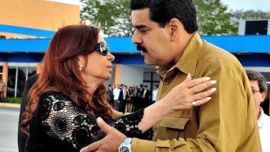

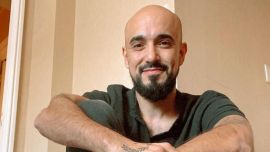
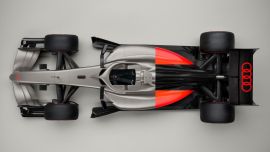





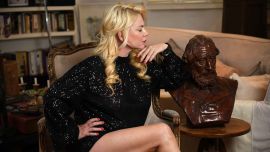
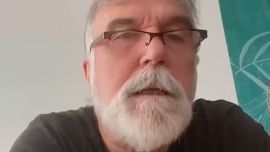
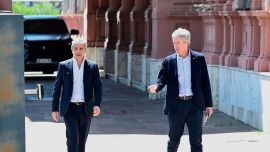
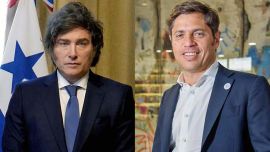
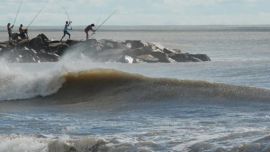
Comments